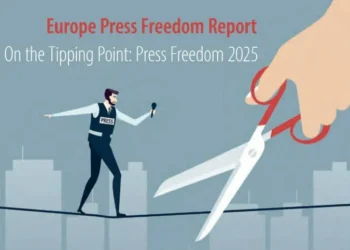Today, April 30, in parallel with the meeting and session of the Bureau in the Parliament of Georgia, protest actions will be held behind the Parliament from 12:00, and at 19:00 in front of the Parliament, on Rustaveli Avenue.
“On April 30, at 19:00, we will protest the Russian law again in front of the parliament. Russian law separates us from Europe! The clearly expressed will of Georgian citizens to become a full member of the European Union is to be protected! The second reading of the draft Russian law may be held on April 30, May 1, May 2 or May 3.
“The second hearing (yesterday) is likely to be postponed to the next day for voting. Thus, on the 30th, we will start protesting the adoption of the law in the second reading. Citizens of Georgia, let’s stand together and prevent the Russification of Georgia. Let’s show the government that the power is in us, the power is in the people, they should listen to us! No to the Russian law!” – the statement of the organizers reads.
Organizers of the protest action are (translated) “Wave”, “Greens”, “Stubborn”, “Kari” and “Students for the European Future”.
The document known to the public as the “Russian Law” was adopted by the Parliament of Georgia with 83 votes in the first reading on April 17. After the adoption with three reading, the law needs to be signed by the president, who has said that she will veto the law. After that, the majority of the “Dream” will most likely try to override the veto, after which it will finally go into effect.
For several weeks, citizens have been gathering in front of the parliament building to protest against the Russian law and organizing thousands of actions and marches. Georgian emigrants from different countries are joining the ongoing protest wave in Georgia.
Western partners warn the Georgian authorities that the adoption of the law will hinder Georgia’s integration into the European Union.
The Russian draft law restricting media and civil society gives grant-receiving organizations the status of “carriers of the interests of a foreign power”, and foundations, including those of the US, EU and other international organizations that give grants in Georgia, the status of “foreign power”.
After the adoption of a similar law in Russia, the independent media and civil sector practically disappeared in the country. This regulation is actively used to punish private individuals, which is why thousands of people emigrated.
By Ana Dumbadze














